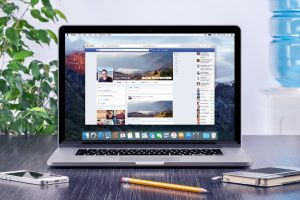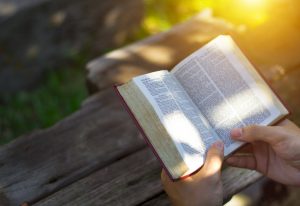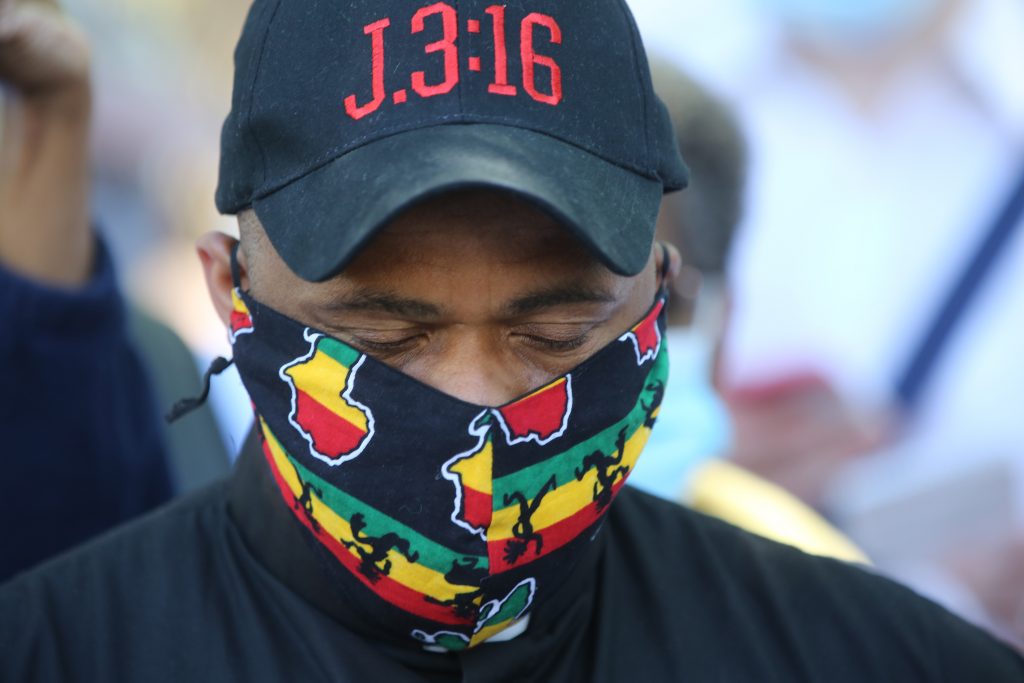In these days of uncertainty and upheaval, I have found myself mulling over a question asked by Maggi Van Dorn, host of the “Deliver Us” podcast: “What’s mine to do and not somebody else’s?”
In the wake of the revelations of sexual abuse by former cardinal Theodore McCarrick and the institutional dereliction that enabled his rise, Van Dorn found herself overwhelmed by the gravity of the crisis.
Her question was an attempt to discover what part she could play in rectifying the wrongs, knowing that some — maybe much — of the necessary reform lay beyond her control.
Like many people, I have been gripped by the news stories about the coronavirus (COVID-19) pandemic: the staggering number of fatalities of the elderly; the widespread economic devastation; the inability to properly grieve the dead; the inequality that’s been unveiled; the uncertainty of what’s to come.
And now our nation — already on edge — has been engulfed by the anger over the murder of George Floyd in Minneapolis, Minnesota. The conflagration was inevitable, as impatience with racial injustice has been simmering for some time.
I keep thinking of the fishing vessel Andrea Gail trying to make it over the rogue wave in “The Perfect Storm”; these crises feel too big and too strong to surmount. Yet I keep asking myself, what can I do? What’s my part to play?
The trouble is that the political, cultural, and ecclesial shouting match, one that rewards reaction over reflection and feeds addiction to anger, makes it nearly impossible to discern how and where to offer some balm.
“Those who have ears ought to hear,” Jesus warns. Right now, I couldn’t pass a hearing test He administered if I tried.
In an attempt to discover what’s mine to do, I am committing to a three-step plan. My hope is that it will create the space and time for contemplation, which the spiritual masters say is a necessary precursor to meaningful action.

1. I will change how I consume news.
Like many Americans, I have become addicted to reading the news.
I’m old enough to remember life before the 24/7 news cycle. My mother and father read The Philadelphia Inquirer every morning and tuned into the 6 p.m. local news each evening. They lived a news-free day in between.
I remember that we weren’t always on high alert. We were informed but not inundated.
In a 2018 essay, New York Times columnist Farhad Manjoo chronicled the experience of getting his news almost exclusively from print newspapers for two months, a radical decision for anyone, let alone a journalist.
“It has been life-changing,” he wrote. “Turning off the buzzing breaking-news machine I carry in my pocket was like unshackling myself from a monster who had me on speed dial, always ready to break into my day with half-baked bulletins.”
Manjoo said he got more thorough, factual coverage of fewer events, and in the process became a more attentive father and husband.
Sign me up.

2. I will change my relationship with social media.
In his book “Them: Why We Hate Each Other and How to Heal,” Nebraska Sen. Ben Sasse devotes a considerable amount of ink presenting the research on how social media is contributing to our cultural divisions and fomenting the anger and anxiety that plagues us.
“The danger of the digital world is when it supplants rather than supplements real relationships with real people in real places. Social media is always tapping us on the shoulder whispering false priorities. “Now!” it warns. “You’re missing out! This is the most important moment of all time.”
I had been evaluating my use of social media before 2020 began, and knew that it was causing me more sadness and unease than joy. It’s been a long time since I have experienced the “social” aspect of it; I find that the platforms privilege individualism — rewarding likes, followers, and retweets, usually for provocative content — rather than solidarity.
The public mudslinging by politicians and pundits; finger-pointing and call-out culture of Catholic leaders and public figures; the Instagram influencers who blend highly intimate, personal testimonies with links to products they are paid to sell me: it’s all heightened my isolation, so acutely experienced during this pandemic.
My reorientation will involve determining what kind of time I allow myself to peruse social media sites, being discriminating about whom to follow, pausing before I post, and making sure that I have prioritized “real relationships with real people in real places.

3. I will spend time with the word that matters the most.
Like many Catholics, I have been experiencing a deep hunger to receive the Lord in the Eucharist. I have never been a fan of crash diets, this one least of all.
The coronavirus has caused so much grief and sadness: the pain is significantly more intense without the most important medicine available.
And in the wake of these horrible murders, when so many people need the Lord who is perfect justice, mercy, and peace, those of us who still need to be quarantined find ourselves unable to go out and bring people the Lord who we receive in the Mass.
But we don’t live on bread alone. We have Scripture, and so we have God’s closeness.
With so many words being written, spoken, shouted, tweeted, and posted, I am going to make a preferential option for the word of God in my life.
In a homily this past January, shortly before pandemic would sweep across the globe, Pope Francis preached on the importance of spending time reading the Bible, encouraging us to keep it on our table, carry it in our pockets or bags, or read it on our cellphones.
“The word of salvation does not go looking for untouched, clean, and safe places,” he preached. “Instead, it enters the complex and obscure places in our lives. Now, as then, God wants to visit the very places we think he will never go … he is not afraid to explore the terrain of our hearts and to enter the roughest and most difficult corners of our lives.”
I am confident that creating the space and silence for God to speak is a crucial first step in discovering what’s mine to do. Maybe you’ll join me. There is certainly no shortage of rough and difficult corners that need his grace and healing touch.

